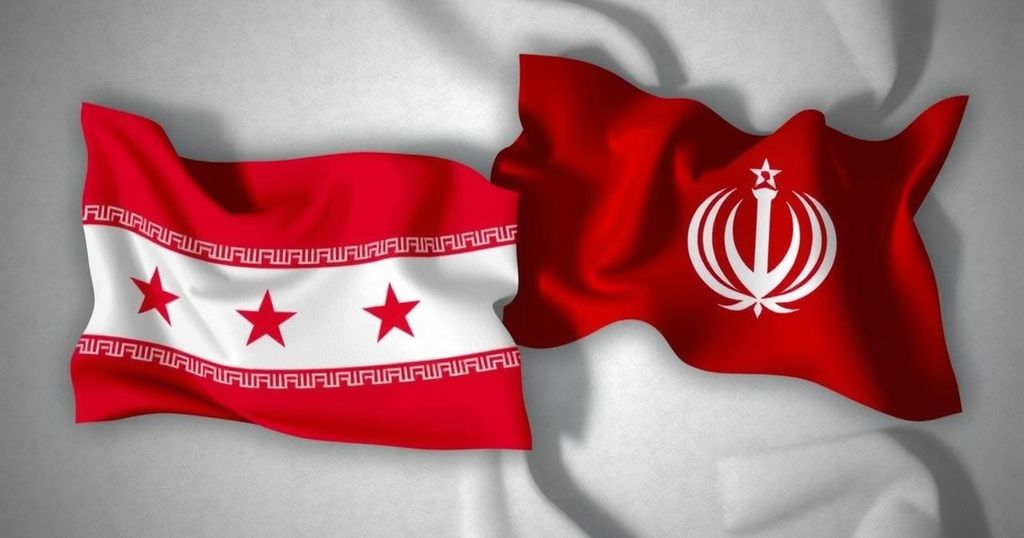Syria Rejects Diplomatic Talks with Iran, Pursues $300 Billion Lawsuit
Syria has firmly denied ongoing diplomatic discussions with Iran regarding the reopening of embassies, in contrast to claims made by Iranian officials. A source from the Syrian government stated there are no plans for such diplomatic ties and announced a $300 billion lawsuit against Iran for alleged damages caused during the civil war, signaling a significant shift in Syria’s foreign policy and a move towards greater accountability.
In a definitive response to Iranian officials’ assertions, a source close to the newly established Syrian leadership has firmly denied the existence of any diplomatic discussions with Iran regarding the reopening of embassies. This denial follows comments made by Iranian government spokesperson Fatemeh Mohajerani, who claimed such negotiations were underway. The Syrian source stated, “There has been no communication between the Syrian political administration and Iran, including diplomatic discussions about reopening embassies or consulates.” Furthermore, it was emphasized that Syria has no plans to engage with Iran diplomatically in the near term.
In a further indication of this diplomatic distancing, the Syrian government is reportedly preparing to initiate an international lawsuit seeking $300 billion in reparations from Iran. This legal action is based on alleged damages resulting from Iran’s military involvement and support for the Assad regime prior to its ousting. The Syrian source informed Al-Mudun, stating, “This compensation is based on the destruction of infrastructure, crimes against the Syrian people, and active participation in the violent suppression of peaceful protests.” The lawsuit seeks accountability for what is perceived as Iran’s destructive role in Syria’s crisis.
The inconsistencies among Iranian officials regarding their diplomatic stance are apparent, with Iranian Foreign Ministry spokesperson Esmail Baqaei indicating limited communications with Syria’s new leadership, contrasting with Mohajerani’s claims of ongoing talks. This divergence suggests a level of disarray within Tehran’s foreign policy apparatus. Furthermore, the Syrian government’s rejection of ties with Iran symbolizes a significant shift from previous policies under Bashar al-Assad’s regime, aiming for accountability and reconstruction.
The developments reflect a broader trend in the Middle East, where nations are reassessing their relationships with Iran in light of its perceived diminishing influence and accountability for past interventions. The Syrian initiative to seek reparations illustrates a clear delineation from Iran’s strategies, emphasizing a desire for justice and rebuilding efforts, ensuring that the consequences of Tehran’s involvement in Syria will not be overlooked.
The context of this article highlights the shifting geopolitical landscape in the Middle East, particularly in relation to Syria’s evolving foreign policy post-Assad. The ongoing civil war and the involvement of foreign powers, particularly Iran, have caused significant devastation in Syria. Recently, with a new political leadership in Syria, there is a palpable move away from Iranian influence, as evidenced by the strong statements rejecting diplomatic ties and the preparation for legal action against Iran for alleged damages caused during the conflict. This situation underscores the broader implications for Iran’s role in regional affairs and the accountability for its foreign policy actions.
In conclusion, the rejection of diplomatic negotiations with Iran by Syria’s new leadership, coupled with the planned $300 billion lawsuit, signifies a significant departure from previous policies, marking a pivotal shift in foreign relations. This development is indicative of Iran’s declining influence in the region, as neighboring countries become increasingly assertive in seeking accountability for past interventions. Syria’s strategic pivot towards establishing a more independent diplomatic stance reflects its desire for justice and rebuilding amidst a complex regional landscape.
Original Source: www.ncr-iran.org




Post Comment